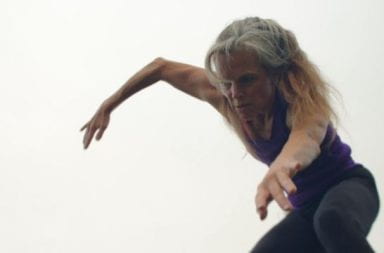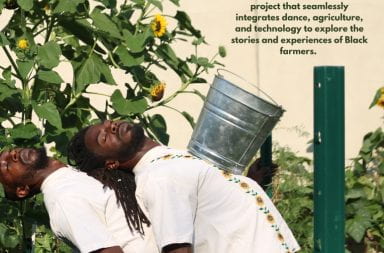
“Lady Wrestler: The Amazing, Untold Story of African-American Women in the Ring” — directed by Ohio State alumnus Chris Bournea — tells the story of some of the first African-American women wrestlers in Columbus. Credit: Courtesy of Chris Bournea
The Wexner Center for the Arts is uncovering Columbus’ rich history of women’s wrestling during Thursday’s premiere screening of “Lady Wrestler: The Amazing, Untold Story of African-American Women in the Ring.”
The documentary chronicles the stories of Babs Wingo, Marva Scott, Ethel Johnson and Ramona Isbell — some of the first African-American women wrestlers from the 1950s through the ‘70s.
“You have this story of women who were involved in a totally male-dominated field and became celebrities in that world and managed to … overcome not just sexism but, also coupled with that, racism,” said Jennifer Lange, curator of the film/video studio program for the Wexner Center. “It feels really relevant and timely.”
These athletes shaped the industry of professional wrestling, fighting prejudices near the beginning of the Civil Rights Movement and second wave of feminism during between the 1950s and ’60s.
The film emerged when director, journalist and Ohio State alumnus Chris Bournea interviewed Johnson, one of the first African-American women wrestlers, in 2005 while working full-time for ThisWeek Community News.
“Ethel told a story about how one time in Tuscaloosa, Alabama, the audience was actually segregated,” Bournea said. “They would let the African-American women wrestle, but they would only let white ticket holders in, so Ethel said she actually took a stand … and she actually left and forfeited her pay and had to drive all the way back to Columbus.”
Bournea decided these women were too important for just one news article and looked to filmmaking as a way of revealing these wrestlers’ histories, which began after wrestling promoter Billy Wolfe was inspired by how Jackie Robinson, the first black player to make it to the MLB, brought diversity and civil rights to the forefront of a white-dominant sport.
“[Wolfe] thought he could do the same with women’s wrestling by integrating it, so he started recruiting black women,” Bournea said. “These three sisters — Babs Wingo, Ethel Johnson, and Marva Scott — were the first three, black female athletes that he recruited.”
Lange said the documentary will give recognition to Wingo, Johnson and Scott, who all trained with Wolfe and his wife, Mildred Burke –– the first female world champion in wrestling.
“It’s a story from the past that resonates in the present and will probably continue to resonate in the future,” Lange said.
After the screening, Isbell, whose story is chronicled in the film, will be present to speak in the Q&A, alongside Bournea, about her life as an African-American female wrestler.
“This is a story about black women who, in their time, faced opposition because of their race and their gender,” Bournea said. “We’re seeing a lot of these issues half a century later that still have not been resolved.”
The screening will take place at 7 p.m. Thursday at the Wexner Center. Admission is $6 for students.
A previous version of this story stated that the screening will be held at Weigel Auditorium, when it is in fact being held at the Wexner Center.


